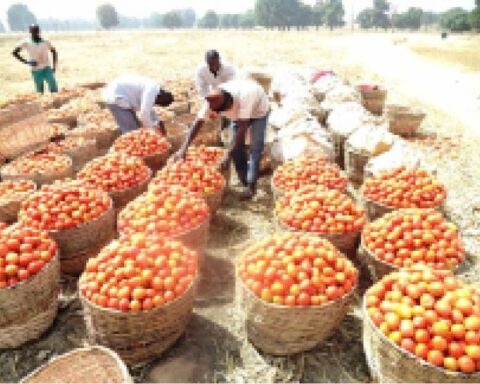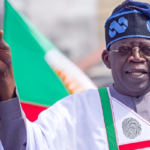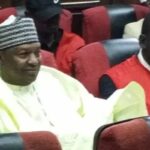In the bustling streets of Lagos, amid the relentless hum of commerce and industry, there lies a persistent shadow over Nigeria’s economic landscape: an over-reliance on oil. Despite its vast reserves, Nigeria’s dependency on oil has become both a boon and a bane, presenting a paradox of riches that often fails to translate into broad-based prosperity. As global markets shift and environmental concerns mount, Nigeria stands at a crossroads, grappling with the pressing need to diversify its economy.
The Oil dependency dilemma
Nigeria’s oil story began in the 1950s, and by the 1970s, it was clear that oil would become the backbone of the nation’s economy. The discovery of vast oil reserves transformed Nigeria into one of Africa’s largest oil producers, propelling it into a new era of wealth and development. The nation’s oil reserves, estimated to be among the largest in the world, promised immense wealth and development. However, this windfall has also ensnared Nigeria in a cycle of dependency. Nigeria’s economy has been heavily dependent on oil for over 30 years, with oil and gas accounting for more than 95% of exports in 2007.
In 2020, the petroleum industry contributed about 9% of Nigeria’s GDP and almost 90% of its export value. Oil production also accounts for about two-thirds of government earnings and 90% of its foreign exchange income. However, this dependency makes government revenue highly sensitive to oil prices and creates few new jobs in the sector. This narrow economic focus has rendered the country vulnerable to global oil price fluctuations, leading to fiscal instability and economic volatility.
The 2014 oil price crash was a stark reminder of this vulnerability. The sudden drop in oil prices plunged Nigeria into its first recession in over two decades. The situation was exacerbated by corruption, mismanagement, and inadequate infrastructure, which meant that even during periods of high oil prices, the benefits were not evenly distributed among the populace.
Some say that Nigeria’s oil dependency has led to other economic problems, such as shrinking non-oil sectors, inflation, and increased imports. Others say that Nigeria is “oil dependent, not oil rich”. Some have called for citizens to pressure presidential and gubernatorial candidates to outline plans to build fiscal resilience and diversify the economy away from oil dependence.
Economic Diversification: A necessary imperative
To break free from the oil trap, Nigeria needs a strategic shift towards diversification. The government’s National Economic Recovery and Growth Plan (ERGP) and its successors have outlined ambitious goals for economic diversification, but progress has been uneven. Sectors such as agriculture, manufacturing, and technology hold promise, yet these areas require significant investment and reform to become competitive on a global scale.
Agriculture: Cultivating growth
Agriculture, which once formed the backbone of Nigeria’s economy, presents a fertile ground for diversification. With over 70% of the population engaged in farming, the sector has the potential to drive economic growth, enhance food security, and create jobs. However, challenges such as outdated farming techniques, lack of infrastructure, and access to finance impede progress. Recent initiatives, such as the Central Bank of Nigeria’s Anchor Borrowers’ Program, aim to address these issues by providing financial support and resources to smallholder farmers, other Initiatives such as the “Green Alternative” plan aim to boost agricultural productivity and food security.
Technology: Innovating for the future
Nigeria’s burgeoning tech industry also offers a beacon of hope. Cities like Lagos and Abuja are emerging as tech hubs, with a vibrant start-up ecosystem and growing interest from global investors. The government’s focus on digital infrastructure, such as the National Broadband Plan, is vital in harnessing the potential of technology. By fostering innovation and supporting tech entrepreneurs, Nigeria can create new revenue streams and reduce its reliance on oil.
Manufacturing: Building a robust industry
The manufacturing sector, while currently underdeveloped, holds significant potential for diversifying Nigeria’s economic base. Investments in infrastructure, energy, and policy reforms are crucial for reviving the sector. As global energy trends shift towards sustainability, Nigeria has an opportunity to invest in renewable energy sources such as solar and wind power. Diversifying the energy sector can provide a stable and sustainable alternative to oil. Government initiatives like the Industrial Revolution Plan aim to boost local production and reduce import dependency, which could help in building a more resilient economy.
Improving governance and transparency
Addressing corruption and improving transparency in the management of oil revenues is crucial. Strengthening institutions and implementing effective governance reforms can ensure that oil wealth is used to benefit all Nigerians rather than a select few.
Challenges and roadblocks
Despite the clear need for diversification, several challenges remain. Political instability, corruption, mismanagement and policy inconsistency continue to undermine efforts. The implementation of reforms requires strong governance and transparency to ensure that resources are effectively utilised.
The way forward
For Nigeria to successfully navigate away from its oil dependency, a comprehensive and inclusive approach is required. This involves not only economic policies but also social and educational reforms to equip the workforce with the skills needed for a diversified economy. Stakeholders, including the government, private sector, and civil society, must collaborate to create a supportive environment for growth.
Various initiatives are already underway to address these challenges. The Nigerian government has launched several programs aimed at economic diversification and industrialization. Additionally, international organisations and NGOs are working with local communities to promote sustainable practices and support grassroots development efforts.
For instance, the World Bank’s support for agricultural development and environmental management projects highlights the importance of international collaboration in achieving Nigeria’s diversification goals.
As Nigeria faces the future, the path to economic stability and prosperity lies in harnessing its diverse potential. By fostering growth in agriculture, technology, and manufacturing, Nigeria can transform its economic landscape and build a more resilient and equitable society. The challenge is substantial, but with concerted effort and strategic vision, Nigeria can escape the quagmire of oil dependency and chart a new course towards sustainable development.
Malaysia, Indonesia and Mexico are prime examples of countries who have been able to successfully diversify their economy away from oil; they are now in the top-right quadrant of the Global Economic Diversification Index.
Miss Nwakanma is a PR intern with Compact Communications, Lagos.



























